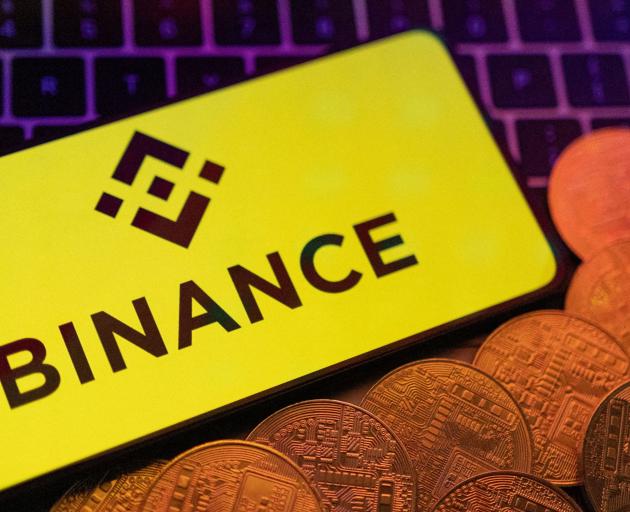
hype and wish fulfilment rather than the proven track record of crypto and Web3, Olivier Jutel writes.
Without much fanfare, last month the finance and expenditure committee published its report, "Inquiry into the current and future nature, impact and risks of cryptocurrencies".
It recommends a pro-growth approach including a regulatory light touch, inter-governmental working groups for blockchain adaptation and spreading the gospel across the education sector.
However, a lot has happened to the global crypto economy in the two years since this report was commissioned.
Late 2021 was a high point of crypto visibility. Matt Damon told us in crypto.com ads that "fortune favours the brave", non-fungible tokens collections such as the Bored Ape Yacht Club were scooping up influencer endorsements and Elon Musk was accused of pumping Dogecoin (which started as a joke cryptocurrency in 2013).
This all came to a halt with the crypto winter of 2022. Two trillion of fictitious value was wiped out, leaving everyday retail consumers holding the bag. The largest crypto-entities left standing such as Binance, which has commended the New Zealand government report, are in the crosshairs of regulators, accused of unlawful behaviour.
The fact that Binance has commended the committee’s report should be a source of shame. The metaverse and Web3 are now merely punchlines. There have been so many absurd bellwethers of this world imploding it’s hard to pick one.
But Twitter co-founder Jack Dorsey’s first tweet as a non-fungible token plummeting in value from $2.9million to $4 takes some beating.
But this report seeks to ignore that real risk in favour of utopian thinking about a Web3 "weightless" economy with New Zealand leading the way.
The report offers as exciting ideas creating digital commodities and property, such as a pair of Nike Jordans for your Fluff Club avatar, that can be traded in digital marketplaces.
Corporate business and contracts may be conducted across borders in the metaverse and perhaps our digital avatars could serve as a valid government ID. This is the grand vision that is supposed to change the nature of governance and put us in the front row for the Web3 revolution.
This is a pitch I’ve heard time and again in my own research on crypto-colonialists in the developing world. Bringing crypto exchanges and traders into tax, registration and reporting regimes is laudable if they are to exist.
The great achievement of blockchain and crypto to date has been regulatory arbitrage for developers. Regulation, depending on its quality, could halt this.
The key rhetorical mechanism crypto boosters use to disavow blockchain’s track record of fraud, exploitation and environmental harm is "it’s still early days".
This latest government report is no different.
Its authority for this claim is the American entrepreneur Marc Andreessen, who has good reason to be a Web3 optimist — his venture capital firm, a16z, is one of the last big funds standing after the crypto winter of 2022.
Perhaps he sees the future? Or perhaps, as someone who wants artificial intelligence to crush the "woke mind virus", he sees crypto as a way to put finance and corporate governance beyond the purview of democratic oversight. It’s hard to think of a more ideologically repugnant character to place your bets on.
Venture capital funds such as a16z are supposed to be the dynamic drivers of innovation, but in Web3 and crypto they’ve created unregistered penny stock schemes (aka "pump and dump") to reap lucrative returns.
It works like this: a16z, or a "big whale" company with large amounts of cryptocurrency, will lend their heft to a Web3 project in exchange for a sizable portion of the coins or tokens that they receive for pennies on the initial coin offering.
They then pretend this is a community-building Web3, empowering the world’s poor or transforming digital identity — whatever is necessary to get people in.
There is a key tension in this report, however, between the Financial Markets Authority’s belief it has the regulatory tools necessary to deal with bad actors in crypto and the key recommendation of a "sandbox" approach that would exempt crypto and blockchain developers from regulation.
The insights of Saule Omarova, Cornell law professor and former Joe Biden nominee for Comptroller of the Currency, are useful in thinking about what crypto does, that we shouldn’t be distracted by crypto’s novelty — this is an old story of creating innovation simply for the sake of skirting regulation.
The report mentions "uncertainty" around securities law. Again, this is a common tactic from crypto boosters to demand "regulatory clarity", which translates into "please give us exemptions".
Behind the rhetoric of decentralisation are exchanges serving as custodians, market makers and coin issuers all at once with endless possibilities for fraud. This replaces traditional financial institutions with arguably more centralised and opaque intermediaries.
This is the track record of crypto and Web3 that demands a regulatory response.
I personally believe we should regulate crypto and the blockchain based on what it does, not what it says it will do at some point in the future. Calls for a sandbox, lest we kill the golden crypto calf, puts our economy in a race to the bottom with the likes of the Bahamas, Palau and the Virgin Islands.
Not content with a sandbox, the report wants to integrate highly dubious use cases into government.
Citing the World Economic Forum, there is a call for the government to rely on private blockchain infrastructure or to use Soul Machine interfaces for consular services.
Government departments should educate themselves on blockchain, conduct hackathons and spread the gospel in the tertiary and secondary education sector.
If this all sounds like a crypto lobbyist’s wish list it’s because the local lobby wrote the key recommendations. The two independent advisers are both on the executive council of BlockchainNZ.
In 2019 BlockchainNZ was vociferous in urging the Prime Minister to embrace crypto as Facebook’s Libra was sure to change our economy for ever.
Libra was an idea as poorly executed as it was pure techno-colonialism. The message from BlockchainNZ then was "adapt or die" — today it has been updated to "early days still".
The fact that Binance has commended the finance and expenditure committee’s report should be a source of shame.
It’s another disappointing case of government processes driven by lobbyists and a willingness to use our country for techno-financial speculation. — Newsroom
■Dr Olivier Jutel is a lecturer in the University of Otago’s department of media, film and communication.











